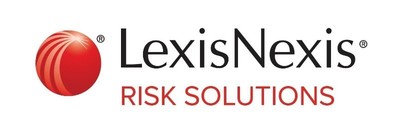|
17.05.2022 15:00:00
|
LexisNexis Risk Solutions True Cost of Fraud Study: Real Estate Report Reveals Every $1 of Fraud Costs Depository Originators $5.34
Mortgage-Related Fraud Increases Over Past Three Years as Online and Mobile-Only Mortgage Transactions Increase
ATLANTA, May 17, 2022 /PRNewswire/ -- LexisNexis® Risk Solutions today released the inaugural edition of the True Cost of Fraud™ Study for Real Estate. The newest addition to the True Cost of Fraud™ suite of reports, the study surveyed 360 risk and fraud executives in the industry to analyze current fraud trends in the United States mortgage originator, mortgage services and title/settlement markets. The report also explores key industry pain points related to fraud detection, prevention and the customer experience. In addition to analyzing the cost of fraud with the level of successful attacks, the study explores the time and resources that mortgage originators and services applied to prevent attacks.
A large majority of firms report that overall fraud has increased during the past 1-3 years with consumer fraud accounting for about two-thirds of lender and servicer fraud losses over the last 12 months. A significant majority of firms indicated that the pandemic increased application fraud across channels, not just for online and mobile. As the front end of the mortgage process, application fraud is a key entry point for fraudsters.
Key findings from True Cost of Fraud Study for Real Estate:
- Attacks and Costs: The cost and volume of mortgage-related fraud is high for originators, servicers and title/settlement firms, with labor for fraud detection, investigation, reporting and recovery being a significant part of these costs. Depository originators have the highest cost, where every $1 of fraud costs them $5.34. Non-depository originators (mortgage lending companies) realize an average cost of $4.66 for every $1 of fraud, a significantly smaller figure.
- Digital Transactional Impacts on Fraud: Fraud costs are largely coming from consumers seeking to purchase a new home through online and mobile transactions. Direct-to-consumer (retail) and correspondent lending are the leading transaction types, with direct-to-customers representing a larger share of fraud costs and average monthly attacks. However, depository originators and title/settlement companies also experience a sizeable portion of fraud losses from construction-related loans.
- Top Fraud Challenges: Identity verification is a top challenge for mortgage originators, servicers and title/settlement companies. The challenge involves assessing digital identity attributes such as email/phone number and identifying synthetic identities. This contributes to other issues related to customer friction, the inability to detect malicious bots and difficulties distinguishing between legitimate and fake consumers. The pandemic and growing mobile channel have added fuel to these issues and increase risk of fraud with call center/phone-based interactions.
- Best Practices: Findings show that firms using a multi-layered solutions approach integrated with cybersecurity and digital customer experience operations can lower fraud and subsequent costs while improving identity verification and fraud detection effectiveness. Integrating fraud prevention with cybersecurity operations throughout the digital customer experience and layering in supportive capabilities such as artificial intelligence and machine learning further strengthens fraud prevention.
"Although the future is uncertain, it's safe to assume that the accelerated movement to online/mobile transactions will continue to grow and that mortgage originators, servicers and title/settlement companies should build out and enhance the digital customer experience while protecting against fraud," said Dawn Hill, director of real estate fraud and identity strategy at LexisNexis Risk Solutions. "A successful fraud detection and prevention approach involves an integration of technology, cybersecurity and digital experience operations in a way that addresses the unique risks from different transaction channels and payment methods, as well as by individuals and types of transactions."
Download a copy of the True Cost of Fraud Study for Real Estate.
About LexisNexis Risk Solutions
LexisNexis® Risk Solutions harnesses the power of data and advanced analytics to provide insights that help businesses and governmental entities reduce risk and improve decisions to benefit people around the globe. We provide data and technology solutions for a wide range of industries including insurance, financial services, healthcare and government. Headquartered in metro Atlanta, Georgia, we have offices throughout the world and are part of RELX (LSE: REL/NYSE: RELX), a global provider of information-based analytics and decision tools for professional and business customers. For more information, please visit www.risk.lexisnexis.com and www.relx.com.
LexisNexis and the Knowledge Burst logo are registered trademarks of RELX Inc. Copyright © 2022 LexisNexis Risk Solutions Group.
Media Contact:
Marcy Theobald
678.232.0948
marcy.theobald@lexisnexisrisk.com
![]() View original content to download multimedia:https://www.prnewswire.com/news-releases/lexisnexis-risk-solutions-true-cost-of-fraud-study-real-estate-report-reveals-every-1-of-fraud-costs-depository-originators-5-34--301545447.html
View original content to download multimedia:https://www.prnewswire.com/news-releases/lexisnexis-risk-solutions-true-cost-of-fraud-study-real-estate-report-reveals-every-1-of-fraud-costs-depository-originators-5-34--301545447.html
SOURCE LexisNexis Risk Solutions
 Der finanzen.at Ratgeber für Aktien!
Der finanzen.at Ratgeber für Aktien!
Wenn Sie mehr über das Thema Aktien erfahren wollen, finden Sie in unserem Ratgeber viele interessante Artikel dazu!
Jetzt informieren!
Nachrichten zu RELX PLC (spons. ADRs) (ex Reed Elsevier)mehr Nachrichten
|
09.01.25 |
The silent business of digital identity has remade Relx (Financial Times) | |
|
09.01.25 |
The silent business of digital identity has remade Relx (Financial Times) | |
|
24.10.24 |
RELX-Aktie freundlich: RELX schafft signifikantes Wachstum (Dow Jones) | |
|
25.07.24 |
RELX bestätigt nach Wachstum im Halbjahr die Jahresprognose (Dow Jones) |
Analysen zu RELX PLC (spons. ADRs) (ex Reed Elsevier)mehr Analysen
Aktien in diesem Artikel
| RELX PLC (spons. ADRs) (ex Reed Elsevier) | 46,80 | 1,74% |
|
